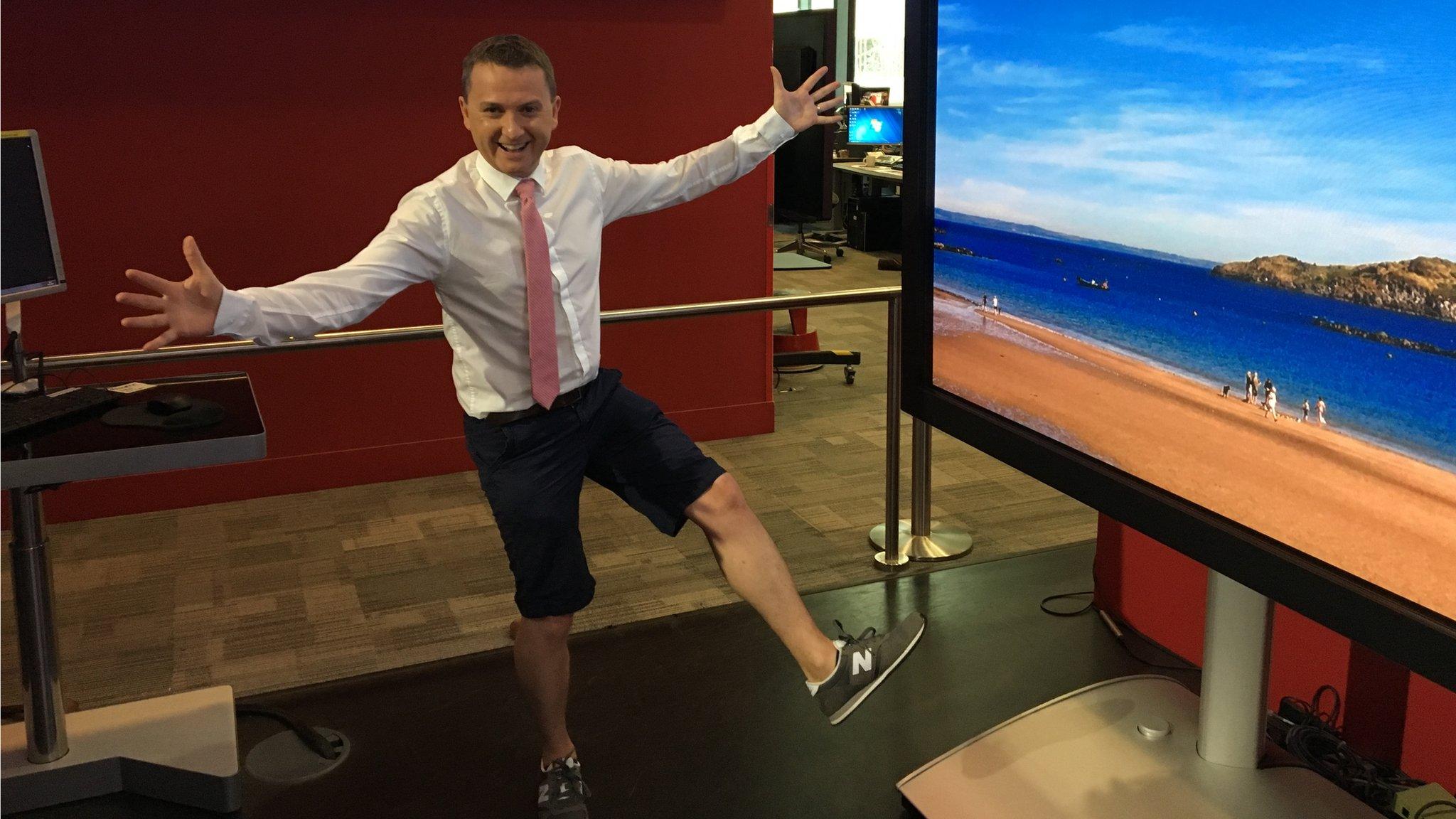UK heatwave: When is it too hot to work?
- Published
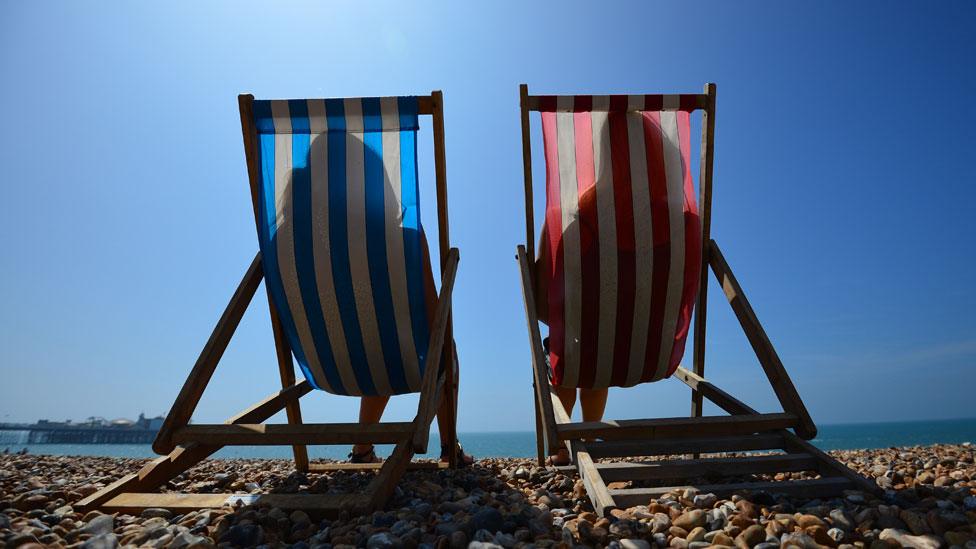
The warm weather can be a particularly relaxing time... if you are not working
With a heatwave warning in place until Thursday for parts of the UK, it's going to be a hotter than normal few days for workers across the country.
Temperatures have topped 30C and are only expected to drop off at the weekend.
In a bid to stay cool, many are ditching their usual work attire for a more dressed-down summer approach.
Others are adopting their own novel ways of keeping cool.
Some might even be pondering one of the biggest workplace questions when temperatures soar - when is it too hot to work?
The answer may not be the news many employees want to hear.
Allow X content?
This article contains content provided by X. We ask for your permission before anything is loaded, as they may be using cookies and other technologies. You may want to read X’s cookie policy, external and privacy policy, external before accepting. To view this content choose ‘accept and continue’.
"There is no law in the UK or Ireland that determines when it is too hot to work," said Londonderry based employment law specialist Martina McAuley.
There is, however, an onus on employers to "ensure the temperature is deemed reasonable in all workplaces", she said.
"Employers do need to consider the impact of workplace temperature and have a general duty to ensure the safety, health and welfare of all employees."
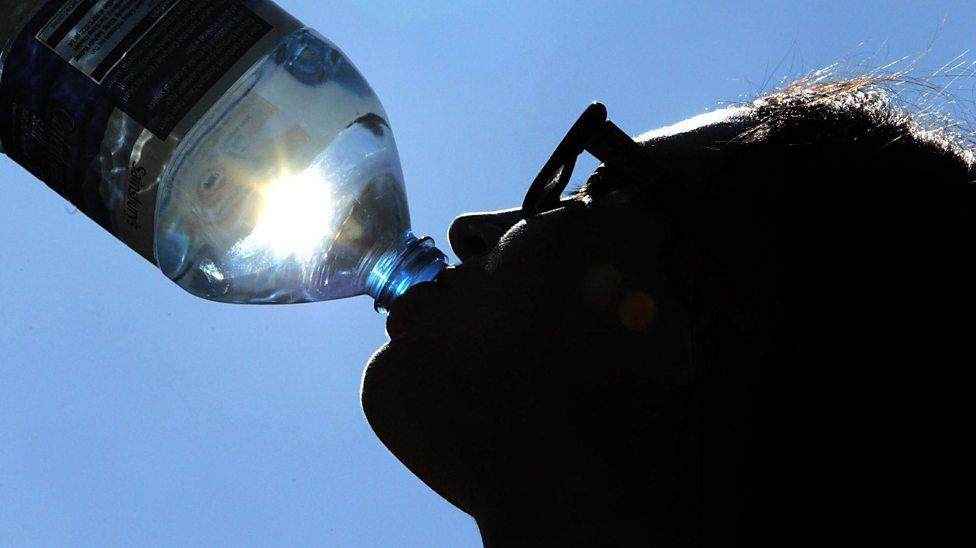
Keeping hydrated while at work is especially important
As the warm weather continues, there are a number of reasonable steps employers should take including ensuring adequate ventilation, said Mrs McAuley.
Extra fans, rearranging office furniture so desks are in shaded areas, and rescheduling especially challenging physical tasks can all help employees working in the heat, she said.
Those who work outside should take extra precautions against the sun, she added, and keeping hydrated is especially important.
"All staff should be encouraged to drink more water during extra hot days and the provision of cold drinks will go a long way to keeping staff comfortable," she said.
But if you're sweltering in an office, spare a thought for those working in seriously hot conditions, (sometimes literally) closer to the coal-face...

Tough places to work in the heat:
Beside a furnace
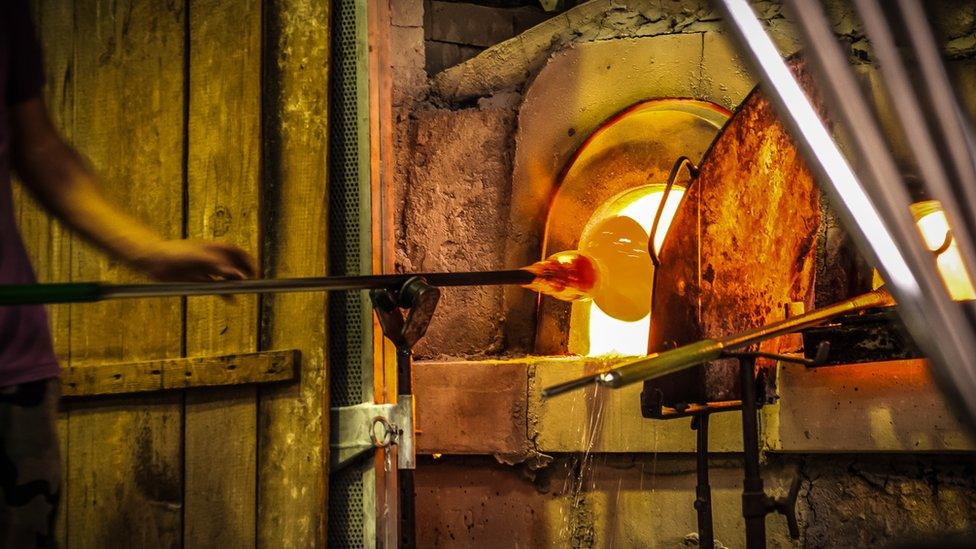
Helen Hancock is a glass blower from Derry.
"The furnace is kept at around 1,150F (620C) so it's hot anywhere close to it, no matter the time of the year," she said.
"But it's a lot more challenging when the weather is like this. That's why most studios in southern Europe close during July and August.
"The secret is making sure the wider studio space is designed or set up to allow air to circulate."

At the stove
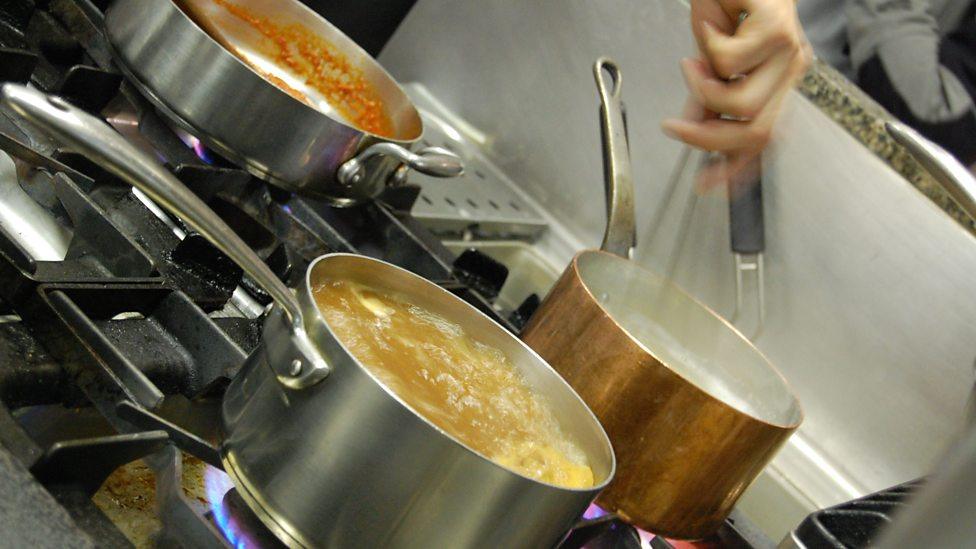
Hotel restaurant head chef Leigh Thurston plied his trade in kitchens in Bermuda where the temperature was as high as 50C, before returning to Northern Ireland's north west.
"Even on a cold day, it's hot in fully operational hotel kitchen," he said.
"When there's 16 burners going as well as salamanders, grills and hot plates pushing up the temperature, it can get hot, hot, hot.
"There's not a lot we can to cool the place down but is it not a chef's job to suffer it for the love of great food?"

Outside
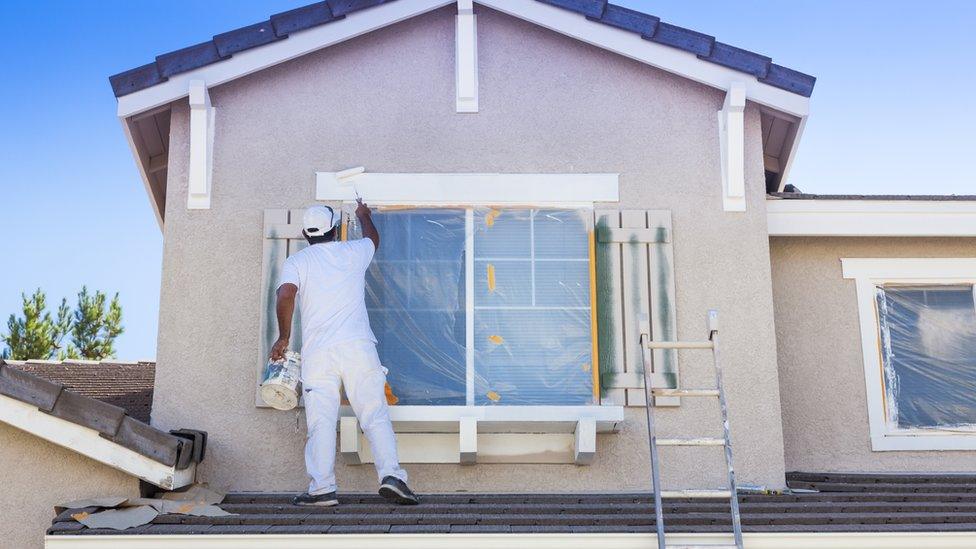
Painter John Sheerin knows a thing or two about the elements. When the sun shines, it's time to get as much outside work done as he can.
"It can be tough in that heat," he said.
"When it's like this I try and start that bit earlier, get to work about 07:30 and try and get as much done as I can before it gets really hot."
As the day goes on, he drinks as much water as possible and tries to follow the sun's direction of travel.
"I'm nearly always trying to make sure I am in the shade," he said.
In a soup factory
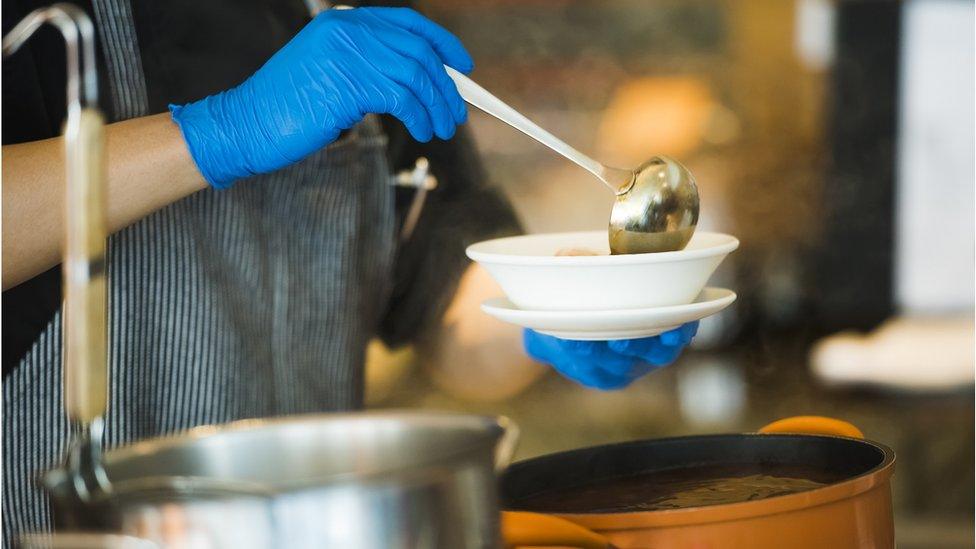
Businesswoman Carol Banahan makes bone broth for a living. She too knows a hot workplace only too well.
"In our kitchen it is always extremely warm, what with our large 100-litre pans on the boil making broth and stock.
"Add to that the fact that our ovens are always full of roasting bones.
"The best way we have to stay cool is to wear loose, comfortable, light clothing and to constantly drink lots of iced water to help keep our body temperature down."
- Published26 June 2018
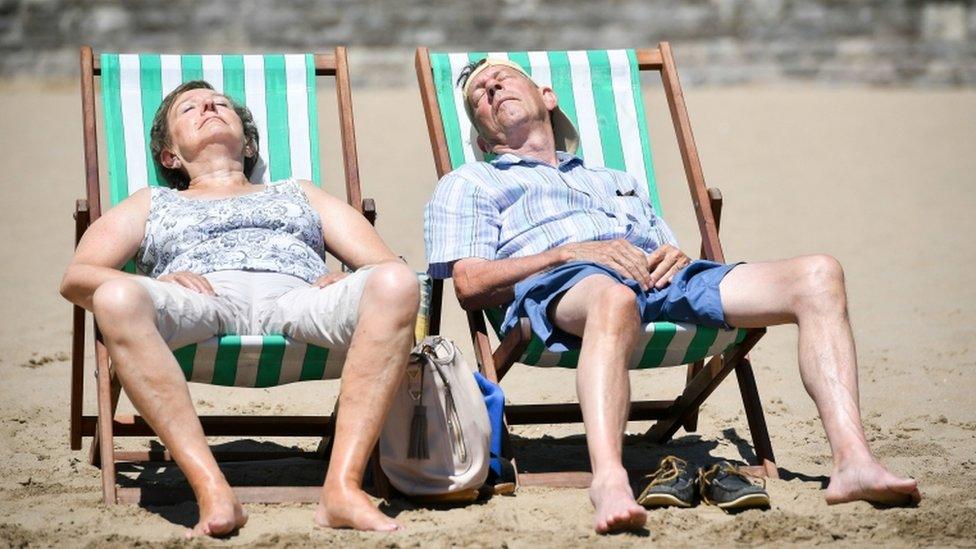
- Published26 June 2018
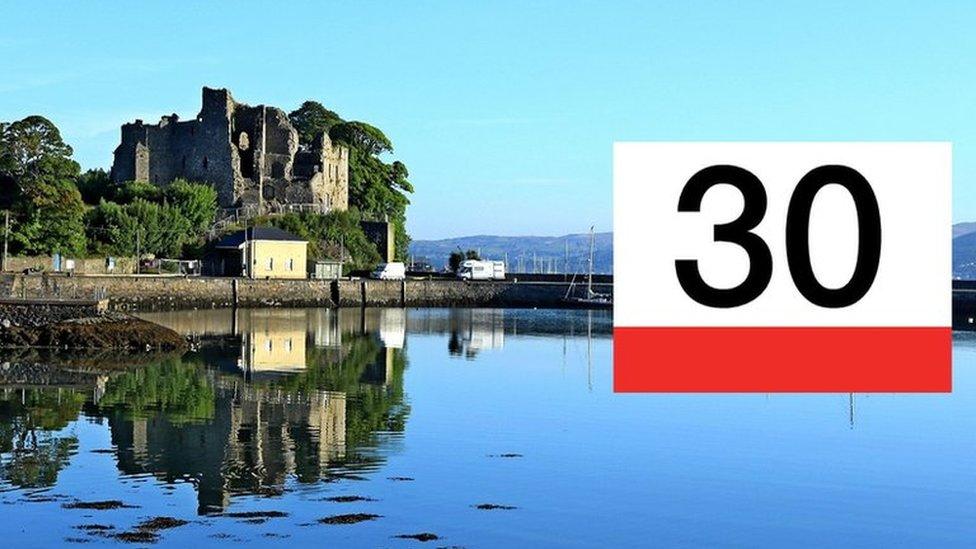
- Published25 June 2018
